RSNSW Award Winners for 2025
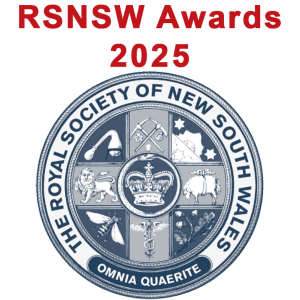
The Royal Society of New South Wales has long recognised distinguished achievements in various fields of knowledge through its Awards. Some are amongst the oldest in Australia, while others are more recent. In 2023, the Society broadened and streamlined its Awards portfolio to recognise recent and evolving fields and disciplines, as well as emerging and established research stars. Since then, the Society Awards are made in two main classes reflecting the Society’s history: Career Excellence Medals and Discipline Awards and Medals, with additional Awards, Scholarships, and Citations, including Internal Awards for distinguished service to the Society and community.
Winners from past years are listed on the Past Awards page of this website.
The Awards for 2025 were announced by the President of the Society, Emeritus Professor Christina Slade FRSN, at the 1337th Ordinary General Meeting of the Society, held on Wednesday, 3 December.
Listed below are the winners with links to information about the awards and the recipients.
RSNSW Career Excellence Awards
RSNSW James Cook Medal — Professor Michelle Haber AM FAA FAHMS
RSNSW Edgeworth David Medal — Scientia Professor Xiaojing Hao FTSE FAA
RSNSW Aboriginal or Torres Strait Islander Scholar Medal — Professor Bradley Moggridge FTSE
RSNSW Ida Browne Medal — No award in 2025
RSNSW Discipline Awards and Lectureships
RSNSW Liversidge Award in the Chemical Sciences — Professor Chuan Zhao FRSN FTSE
RSNSW Warren Award in Engineering, Technology, Architecture, and Design — Professor Simon Ringer FRSN FTSE
RSNSW Award in the Creative and Performing Arts — Scientia Professor Dennis Del Favero FAHA
RSNSW Award in the Life Sciences — Professor Richard Kingsford AO FRSN FRZS
RSNSW Scholarships, Early Career Researcher, and Student Awards
RSNSW Bicentennial Postgraduate Scholarships
— Ms Eilish McMaster (University of Sydney)
— Ms Isabelle Nicholas (Macquarie University)
— Mr Amir Tourani (Western Sydney University)
— Mr Christopher Whyte (University of Sydney)
RSNSW Bicentennial Early Career Research and Service Citations
— Dr Adrian Y. S. Lee (Westmead Institute of Medical Research, University of Sydney)
— Dr Jiayan Liao (University of Technology Sydney)
— Dr Brandon Munn (University of Sydney)
RSNSW Jak Kelly Award
— Mr Yunlong Qiang (University of Sydney)
RSNSW James Cook Medal
Professor Michelle Haber AM FAA FAHMS — Children’s Cancer Institute and UNSW Sydney
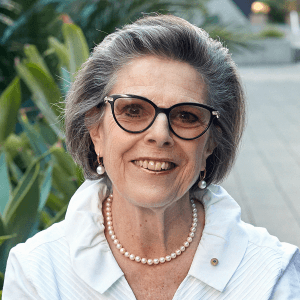
The James Cook Medal is awarded for the most meritorious lifetime contributions to knowledge and society in Australia or its territories made by an individual and conducted mainly in New South Wales. The recipient may be resident in Australia or elsewhere. The James Cook Medal was established by the Council in 1943 following a donation made by Henry Ferdinand Halloran to celebrate his 50 years as a member of the Society, and it has been awarded periodically since 1947. In 2023, the Council determined to award it annually.
Few individuals have had such a sustained, transformative impact on science, medicine and community outcomes – and fewer still have an equal record of advancing knowledge, building institutions, and translating discoveries into lifesaving practice as Professor Michelle Haber. Across more than four decades, she has shaped the field of childhood cancer research both nationally and internationally. She has contributed seminal discoveries in cancer biology, pioneered new diagnostics and therapies, and created enduring national frameworks that ensure children with cancer in Australia now benefit from world-leading personalised medicine programs. Recently retired as Executive Director of the Children’s Cancer Institute, she remains a co-leader of the Experimental Therapeutics and Molecular Oncology Group in the UNSW Sydney Faculty of Medicine.
RSNSW Edgeworth David Medal
Scientia Professor Xiaojing Hao FTSE FAA — UNSW Sydney
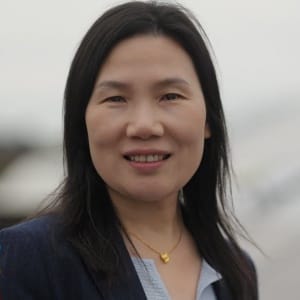
The Edgeworth David Medal is awarded for the most meritorious contributions to knowledge and society in Australia or its territories, conducted mainly in New South Wales, by an individual who is from 5–15 years post-PhD or equivalent on 1 January of the year of the award. The recipient may be resident in Australia or elsewhere. The Edgeworth David Medal was established by the Council in 1943 in honour of Sir T. W. Edgeworth David FRS, who compiled the first comprehensive record of the geology of Australia, and following a donation made by Henry Ferdinand Halloran to celebrate his 50 years as a member of the Society. It has been periodically awarded since 1948, and in 2023, the Council determined to award it annually.
Professor Xiaojing Hao is at the international forefront of developing cost-effective thin-film semiconductor materials to harvest sunlight for future photovoltaic technology, products and applications. She has made vital contributions to photovoltaic science and engineering by providing unique solutions for improved performance of several types of emerging thin-film photovoltaic devices, and developing efficient, cheap and environmentally friendly thin-film materials. Her work represents a significant and lasting contribution to the advancement of knowledge in this field, strengthening Australia’s international standing in photovoltaics and marking her as a scientist of distinction.
RSNSW Aboriginal or Torres Strait Islander Scholar Medal
Professor Bradley Moggridge FTSE — University of Technology Sydney
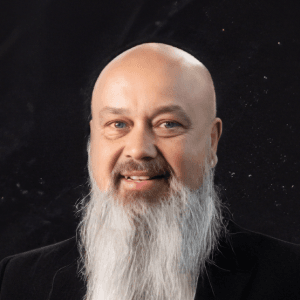
The Aboriginal or Torres Strait Islander Scholars Medal is awarded for sustained, meritorious contributions to knowledge and society made by scholars identifying as Australian Aboriginal or Torres Strait Islander and conducted mainly in New South Wales. Recipients may be resident in Australia or elsewhere. The Aboriginal or Torres Strait Islander Scholars Medal was established by the Council in 2023 to reflect the full scope of the Society’s values.
Professor Bradley Moggridge is a Kamilaroi man and the Associate Dean (Indigenous Leadership and Engagement) in the UTS Faculty of Science. He is a global leader in water research and climate change, focused on the integration of Traditional Aboriginal knowledge and Western science to provide a holistic approach to the management and repair of Country. Professor Moggridge’s 25 years’ experience spans water and environmental science, cultural science, regulation, Indigenous engagement, water policy and hydrogeology. His strong research publication record informs his extensive and highly sought-after engagement advising on high-profile expert panels, with professional societies, on advisory groups, RAP committees and boards.
RSNSW Liversidge Award and Lectureship in the Chemical Sciences
Professor Chuan Zhao FRSN FTSE — UNSW Sydney
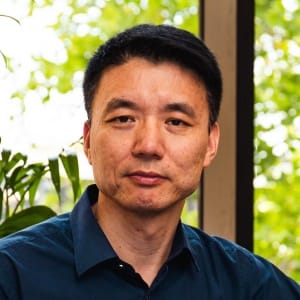
The Liverside Award and Lectureship recognises distinguished research in any area of the Chemical Sciences, conducted mainly in New South Wales. Recipients may be resident in Australia or elsewhere. The Liversidge Lectureship was established in 1931 by the Royal Society of NSW in conjunction with the Royal Australian Chemical Institute (RACI), in honour of Archibald Liversidge MA LLD FRS, Professor of Chemistry at the University of Sydney (1874-1907), and one of the Society’s Council members who sponsored its Act of Incorporation in 1881. In 2023, the Council designated it the Royal Society of NSW Liversidge Award and Lectureship.
Professor Chuan Zhao has become the leading electrochemist in Australia. His recent award of a $3M ARC Laureate Fellowship testifies to his standing in Australian science. His field of research, the production of green chemicals and sources of energy by electrochemistry, is actively contributing to the nation’s fight against climate change. He has been the world record holder for the efficiency of hydrogen production by electrolysis of water. Professor Zhao’s work has been recognised by numerous awards and fellowships, including FRSN, FRACI, FRSC, FTSE, FIAAM, the HG Smith Memorial Award (2024), and RH Stokes Medal (2023) of the RACI.
RSNSW Warren Award in Engineering, Technology, Architecture, and Design
Professor Simon Ringer FRSN FTSE — University of Sydney
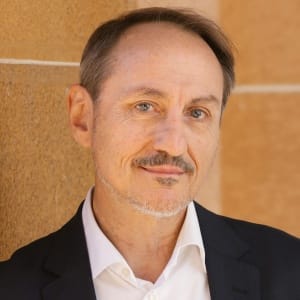
The Warren Award recognises distinguished research in any area of Engineering, Technology, Architecture and Design, conducted mainly in New South Wales. Recipients may be resident in Australia or elsewhere. The award honours William Henry Warren, Foundation Professor of Engineering at the University of Sydney, establishing the first faculty of engineering in New South Wales in 1884. He was the founding President of the Institution of Engineers, Australia, and twice President of the Royal Society of NSW. The Warren Prize (then medal) was first awarded in 2020, and in 2023 Council designated it the Royal Society of NSW Warren Award.
Professor Simon Ringer is a globally recognised materials engineer whose research has redefined how solute atoms govern microstructure and properties in metals and semiconductors. His breakthroughs have resolved long-standing property conflicts and translated into industrial technologies in steel, aluminium, and advanced alloys worldwide. His innovations in electron microscopy and atom probe tomography have delivered unprecedented atomic-scale insights, advancing both fundamental science and applied engineering. His leadership has transformed NSW’s research landscape through both new centres and institutes, and by establishing new national research facilities, expanding our capacity to make, measure and model for knowledge creation, industrial impact, and Australia’s technological competitiveness.
RSNSW Award in the Creative and Performing Arts
Scientia Professor Dennis Del Favero FAHA — UNSW Sydney
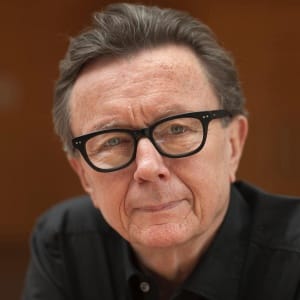
This Award recognises distinguished research in any area of the Creative Arts and/or Performance, conducted mainly in New South Wales. Recipients may be resident in Australia or elsewhere. The RSNSW Council established the Creative and Performing Arts Award in 2023 to reflect the full scope of the Society’s founding values.
Professor Dennis Del Favero is a distinguished scholar in the field of Visual Arts, whose research has resulted in frontier advances in intelligent visualisation systems. His research has involved developing and integrating artistic, conceptual, and technological advances in contemporary art using immersive aesthetics and AI. These have been developed through basic research projects with outcomes translated into applied research for field-leading industrial applications for major museums, media, performing arts, mining and emergency organisations. His work has been nationally and internationally praised for its exceptional artistic quality, as well as cultural and social utility.
RSNSW Award in the Life Sciences
Professor Richard Kingsford AO FRSN FRZS — UNSW Sydney
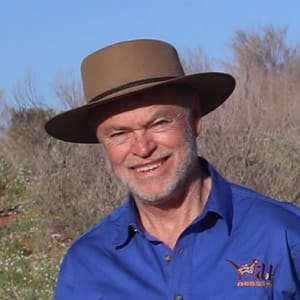
This Award recognises distinguished research in any area of the Life Sciences, excluding the veterinary and medical sciences, conducted mainly in New South Wales. Recipients may be resident in Australia or elsewhere. The RSNSW Council established the Life Sciences Award in 2023 to reflect the full scope of the Society’s founding values.
Professor Richard Kingsford is widely regarded as one of Australia’s most prominent and respected experts on waterbird, wetland and river ecology, with the majority of his 30+ year career having been focused on restoring and protecting the wetland ecosystems of NSW. Over the past decade, he has extended his influence to terrestrial ecology, leading the Wild Deserts Partnership Project in far western NSW, reintroducing locally extinct mammal species and controlling feral predators. His long-term contribution to environmental science in NSW has been nothing short of transformational.
RSNSW Bicentennial Postgraduate Scholarships
The RSNSW Bicentennial Postgraduate Scholarships are awarded each year to recognise outstanding achievements by young researchers in any academic field. The awards are made primarily on the basis of an academic paper that is published by a higher degree research student, enrolled at a university in NSW or the ACT. The paper must have been published in final form (electronic or paper ) after 1 July in the preceding year. The student must have been enrolled as a higher degree student at the time of the initial submission to the journal in which the paper appeared.
For 2025, three RSNSW Scholarships have been awarded:
- Ms Eilish McMaster — PhD candidate in population genomics of flowering plants at the University of Sydney
- Ms Isabelle Nicolas — PhD candidate in the regulation of money laundering at Macquarie University
- Mr Amir Tourani — PhD candidate in biology at Western Sydney University
- Mr Christopher Whyte — PhD candidate in computational neuroscience at the University of Sydney
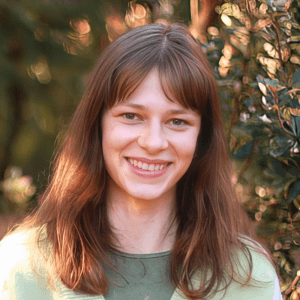
Ms Eilish McMaster is undertaking a PhD in the population genomics of flowering plants at the University of Sydney. She was awarded a Bicentennial Scholarship based on the letters from nomimators attesting to her contributions and capabilities, and her publication — McMaster, E. S., Dimon, R. J., Baker, A. G., Harre, C., Mallee, J., Maric, A., Richards, P., Wiseman, M., Ho, S. Y. W., & Rossetto, M. (2025) Combining spatial, genetic, and environmental risk data to define and prioritize in situ conservation units. Ecology and Evolution, 15(5), e71251
In this paper, Eilish McMaster developed and presented a framework for analysing plant populations to identify conservation priorities while considering fire risk, genetic diversity, and resource limitations. She applied her framework to 12 species of Australian rainforest trees, but it also offers a useful tool for guiding the management of other species of conservation concern. The study presents a highly innovative, comprehensive, and effective combination of vegetation mapping, genomic analyses, and modelling of fire risk. This paper was submitted for peer review in August 2024 and published in the international journal Ecology and Evolution in May 2025.

Ms Isabelle Nicolas is undertaking a PhD in the field of financial crime at Macquarie University. She was awarded a Bicentennial Scholarship based on the letters from nominators attesting to her contributions and capabilities, and her publication — Nicolas, I. (2024). Striking the balance: anti-money laundering goals and legal privilege in Australia. Current Issues in Criminal Justice, 37(2), 208–227.
The research described in her article analyses Australia’s long-standing failure to regulate legal professionals under international anti-money laundering (AML) and counter-terrorism financing (CTF) standards, focusing on resistance due to concerns over legal professional privilege (LPP). It compares Australia’s approach with the United Kingdom and New Zealand, offering practical recommendations for reform. The article’s publication coincided with the passage of the AML/CTF Amendment Act 2024, which extended AML obligations to the legal sector and adopted many of the paper’s suggestions. The author’s subsequent role at AUSTRAC demonstrates the research’s real-world impact, bridging academic insight and regulatory practice to shape public policy.
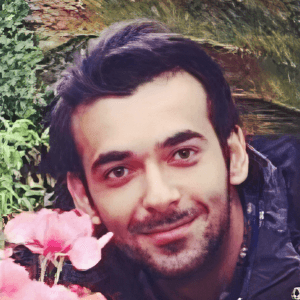
Mr Amir Tourani is undertaking a PhD at Western Sydney University. His doctoral research focuses on bacteria called endosymbionts, which are passed down from mother to offspring. His work is concerned with two types: Cardinium and Wolbachia, found in Kelly’s citrus thrips (Pezothrips kellyanus), a small insect with a special way of reproducing called haplodiploidy. The research is significant because it explores how Wolbachia spreads in host populations by means of reproductive manipulation and assesses the potential of the Wolbachia-facilitated incompatible insect technique (IIT) for biological pest control in an insect species of the haplodiploid arthropod group, which represents a significant portion of biodiversity, including numerous pest species.
He was awarded a Bicentennial Scholarship based on the letters from nominators attesting to her contributions and capabilities, and his publication — Tourani AH, Katlav A, Cook JM, Riegler M (2024). Mating receptivity mediated by endosymbiont interactions in a haplodiploid thrips species. Proceedings of the Royal Society B 2024 Oct 30; 291:20241564.
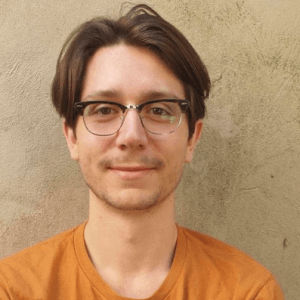
Mr Christopher Whyte is undertaking a PhD in computational neuroscience at the University of Sydney. He was awarded a Bicentennial Scholarship based on the letters from nominators attesting to her contributions and capabilities, and his publication: Whyte, C. J., Müller, E. J., Aru, J., Larkum, M., John, Y., Munn, B. R., & Shine, J. M. (2025). A burst-dependent thalamocortical substrate for perceptual awareness. PLOS Computational Biology, 21(4), e1012951.
A fundamental challenge in neuroscience is understanding the neurobiological basis of psychological function, a key step for the development of precision medicine in psychiatry. Here, Christopher Whyte developed a state-of-the-art computational model of sensory processing and perceptual awareness based on the latest biophysical data from animal models. Unlike most biophysical models, which focus solely on cellular findings in animals, after being validated in animal data, the model is generalised to explain and simulate human perceptual psychology experiments. The model provides a cellular-level explanation for known psychophysical laws, creating a crucial building block to bridge the gap between neurobiology and psychology.
RSNSW Bicentennial Early Career Research and Service Citations
The RSNSW Bicentennial Early Career Research and Service Citations are awarded each year to recognise outstanding contributions to research and service to the academic and wider community. Applicants must, on 1 January of the year of nomination, be no more than 5 years after the award of their PhD or equivalent by a university or other research institution in NSW or the ACT.
For 2025, three RSNSW Early Career Research Citations have been awarded:
- Dr Adrian Y. S. Lee — Westmead Institute of Medical Research and University of Sydney
- Dr Jiayan Liao — University of Technology Sydney
- Dr Brandon Munn — University of Sydney

Dr Adrian Lee is a clinician-scientist specialising in autoimmunity and Sjögren’s disease (SjD), working as a clinical immunologist at Westmead Hospital. As an emerging leader in the field (SciVal FWCI 1.53), he established the first SjD biobank and registry in New South Wales and is completing his PhD in this area.
Lee is a strong advocate for SjD patients, engaging with them internationally and working with patient-driven organisations. He has published over 100 peer-reviewed papers, mentored young researchers, and spoken at conferences. Through his work, Lee aims to understand SjD’s immunological mechanisms and promote research to improve patient outcomes. His dedication has significantly advanced SjD research and awareness.

Dr Jiayan Liao is an award-winning nanophotonics researcher and NHMRC EL1 Fellow whose work is transforming molecular diagnostics. She is currently a Senior Lecturer and UTS Chancellor’s Research Fellow in the University of Technology School of Mathematical and Physical Sciences.
With 90+ publications, over $2M in funding, and industry-translated discoveries, she also contributes actively to the academic and broader community. She mentors over 10 HDR students and ECRs, serves on editorial boards, and promotes diversity in STEM through outreach and public engagement. International collaborations and industry partnerships are advancing her research in imaging, cancer diagnostics, and pandemic preparedness. A recipient of the NSW Premier’s Prize (2024) and the NHMRC Research Excellence Award (2023), she exemplifies excellence, service, and leadership in science.
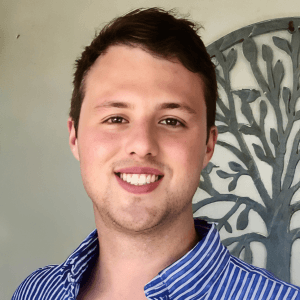
Dr Brandon Munn is a neuophysicist, five years post-PhD, who applies principles from physics to uncover how the brain processes information. He is a postdoctoral research fellow at the University of Sydney School of Medical Sciences and the Brain and Mind Centre.
In a groundbreaking study recently published in Cell, he and his group uncovered a universal principle of brain organisation that unifies competing theories of neural coding. We found that brain activity follows a multiscale hierarchy that is conserved across five phylogenetically diverse species from zebrafish to non-human primates. This structure allows the brain to balance efficiency and resilience and flexibly reconfigure during behaviour. Using physics-inspired analyses and network modelling, we show that this organisation enhances information flow. By revealing a fundamental law of brain function, this discovery provides a powerful new foundation for understanding cognition, neurological disease, and the design of future artificial intelligence technologies.
RSNSW Jak Kelly Award
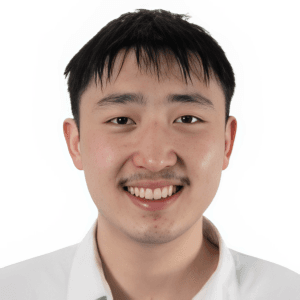
The RSNSW Jak Kelly Award recognises excellence in postgraduate research in physics annually. The winner is selected from presenters at each year’s Australian Institute of Physics NSW Branch Postgraduate Awards, as advised to the Awards Committee of the Royal Society of NSW. This Award honours the life of Jak Kelly (1928-2012), Professor and Head of Physics at the University of NSW (1985-1989), Honorary Professor at the University of Sydney (2004), and President of the Royal Society of NSW (2005-2006). It was first awarded in 2010.
For 2025, the Jak Kelly Award goes to Mr Yunlong Qiang of the University of Sydney School of Physics.
Mr Yunlong Qiang is a PhD candidate in the University of Sydney School of Physics whose research is focused on a new class of optical solitons. Solitons are unique wave packets that maintain their shape during propagation, arising when linear and nonlinear effects balance. Solitons have fascinated scientists for over a century, with applications across oceanography, plasma physics, and optics. In optics, conventional solitons are described by the nonlinear Schrödinger equation, balancing the Kerr effect with quadratic dispersion, the dominant form in most optical systems. For decades, research focused solely on quadratic dispersion solitons. However, in 2016, the University of Sydney achieved the first experimental observation of quartic dispersion solitons, opening a vast new solution space. This breakthrough demanded deeper theoretical understanding. Researchers at the University of Sydney have pursued three approaches to simplify and categorise these complex solutions, focusing particularly on whether analytic solutions could be found. Unlike conventional solitons, quartic dispersion solitons involve far more complex nonlinear equations. In his research, Mr Qiang has developed a novel analytic method, enabling solutions across much of this space, laying a strong foundation for future soliton research and applications.